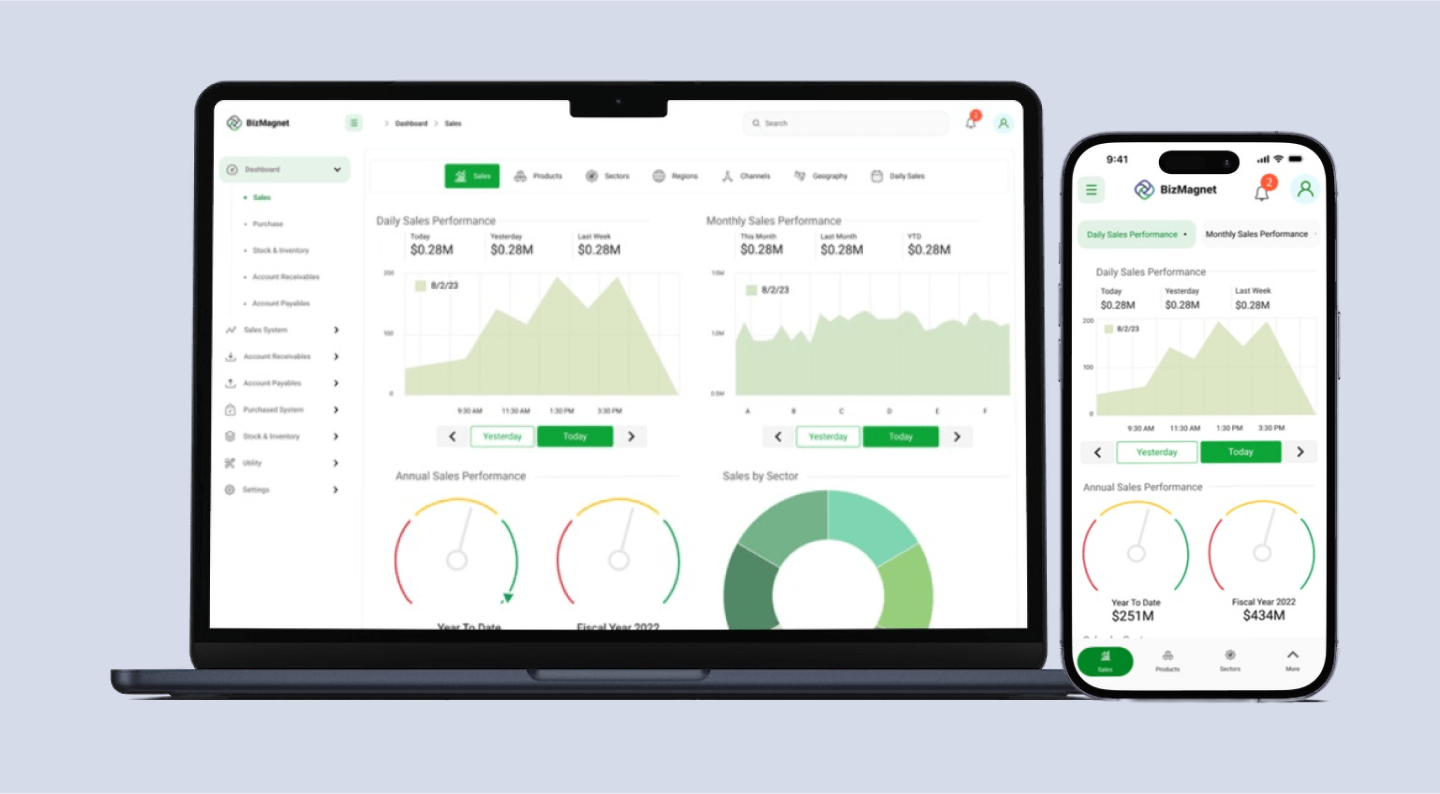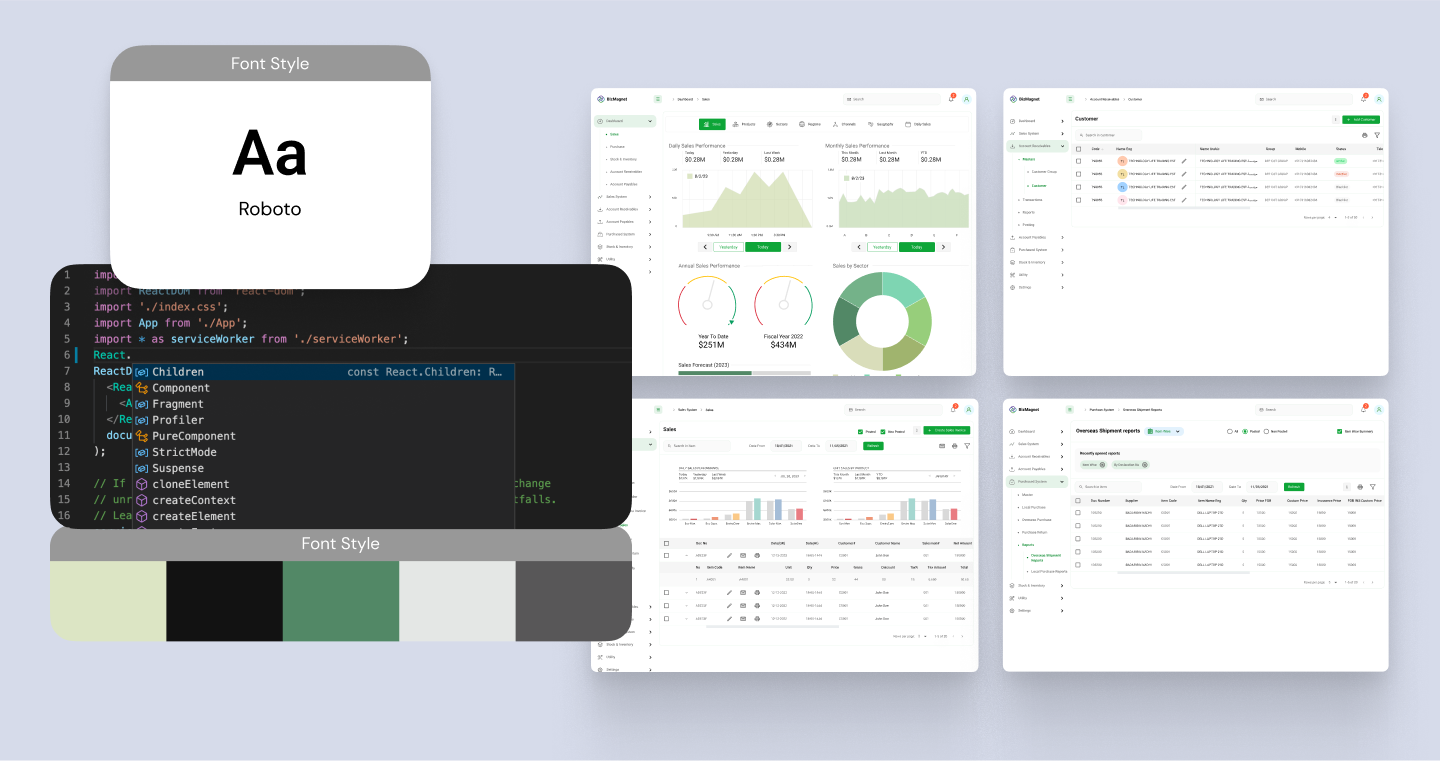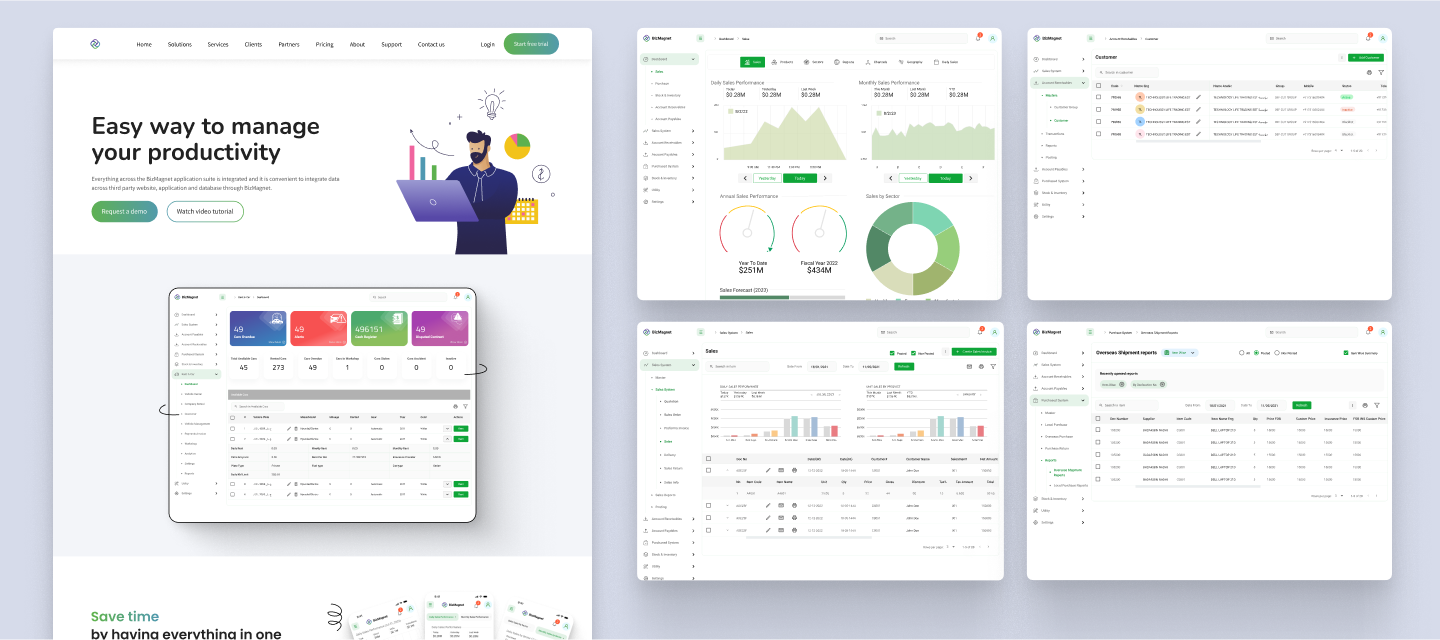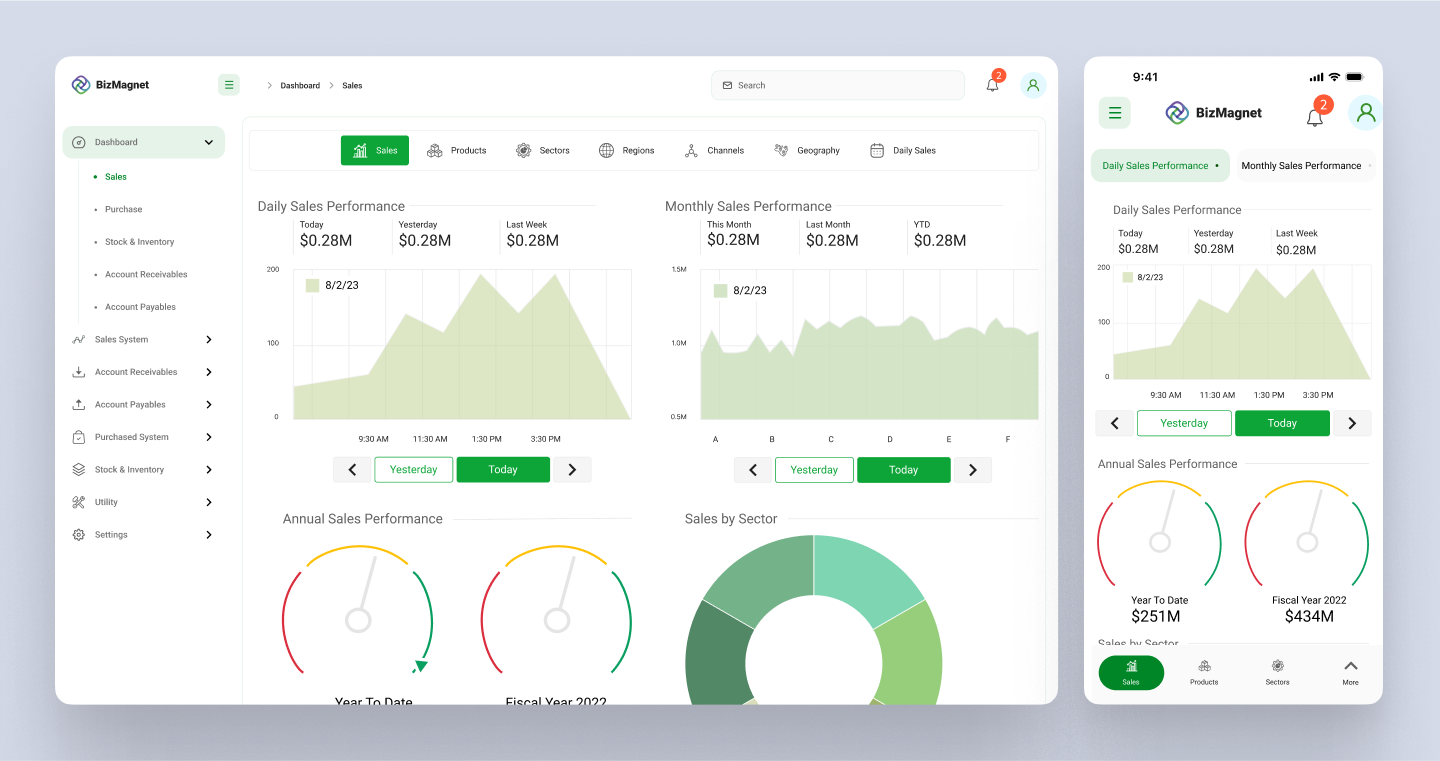BizMagnet ERP
BizMagnet ERP
Enhanced BizMagnet ERP’s car rental, finance, accounting, freight, and CRM modules with intuitive, user-friendly interfaces and powerful features, improving usability and driving sales while showcasing strong branding and design expertise across the platform.
- Deliverables:
- Functional Specification, Concept Designs with wireframes and live Figma prototype
- Team:
- Project completely lead by myself


Business Goal
The goal was to transform an old desktop ERP into a modern SaaS platform, streamlining workflows across modules such as finance, accounting, CRM, freight, and car rental. The system simplifies data management, delivers comprehensive performance insights, and reduces operational overhead. It aims to enhance user experience, support informed decision-making with clear analytics, and improve efficiency through automation and intuitive design.
User Impact Goal
The goal was to provide stewards with an intuitive tool that makes order-taking effortless and efficient. The app enhances usability by streamlining tasks such as order customization, table merging, and bill generation. This reduces wait times for customers, improves accuracy in service, and creates a smoother dining experience while boosting staff productivity.
Design Process
Through workshops and interviews, I began by discussing pain points with key stakeholders, then mapped out the new solution and refined it through each design stage to meet the needs of both administrators and end-users. Take a look:
01/ Research & Ideation
Initial research revealed that existing tools for restaurant staff were clunky, difficult to use, and slowed down service. They lacked the flexibility needed for fast-paced dining environments. Based on these insights and workshop learnings, I explored features like simplified dashboards for stewards, real-time order tracking, customizable dish notes, seamless table management, and bill generation to improve efficiency and enhance customer experience.
02/ Flow Mapping
Flow mapping focused on outlining the end-to-end journey of restaurant stewards, from taking orders at the table to communicating with the kitchen and finalizing bills. Key processes such as order splitting, table merging, and live status updates were visualized to eliminate bottlenecks. This ensured intuitive navigation, faster task completion, and a consistent flow across multiple tables and floors.
03/ Functional Specification & Wireframes
Functional specifications and wireframes were developed to define the core features and interactions of the app. These included order input screens, customer notes, item customization, table views, and bill generation. Wireframes captured the restaurant’s operational hierarchy across multiple floors and table groups, ensuring clarity, ease of use, and adaptability to different restaurant layouts.
04/ Concept Designs
Concept designs translated wireframes into visual prototypes, applying a component-based system with tailored illustrations and colors. The designs emphasized clarity and simplicity by following the KISS principle. The visual style aligned with restaurant workflows while ensuring consistency across screens. This stage validated the design approach, refined user flows, and provided a tangible vision of the final mobile app.



Next Steps
The Minto App is already in use across more than a thousand restaurants in India. The next step is to scale further through mass marketing and broader user generation while continuing to refine features. Enhancements focus on maintaining a seamless steward experience, strengthening integration with restaurant operations, and expanding adoption at a larger scale.
Round Up
The ERP SaaS platform demonstrates how thoughtful UX/UI design can transform complex systems into intuitive, scalable solutions. From research and ideation to concept designs and functional specifications, the project highlights the impact of design in enhancing usability, driving user adoption, and supporting business growth across multiple countries.